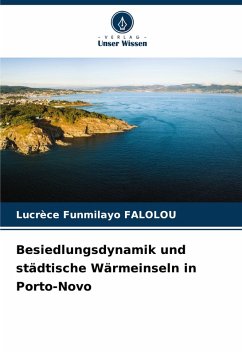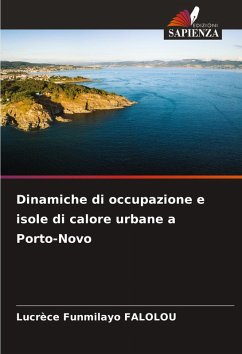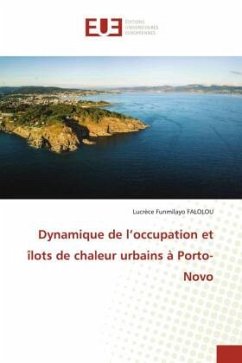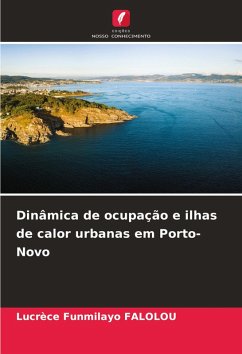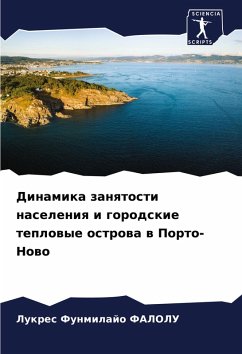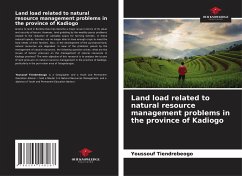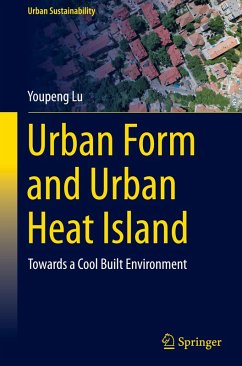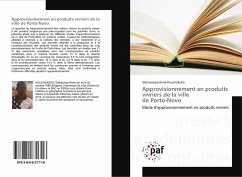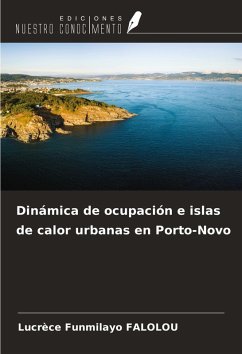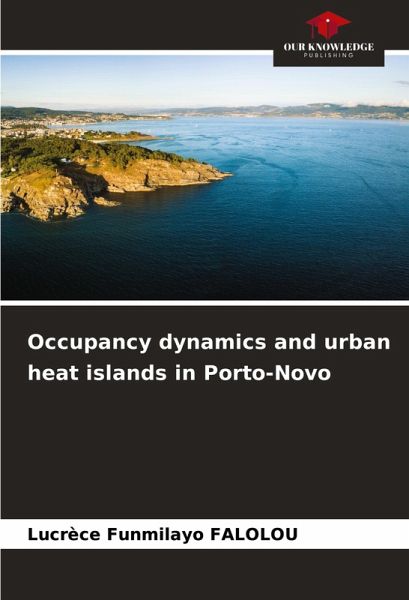
Occupancy dynamics and urban heat islands in Porto-Novo
Versandkostenfrei!
Versandfertig in 6-10 Tagen
56,99 €
inkl. MwSt.

PAYBACK Punkte
28 °P sammeln!
Demographic growth in urban areas is not without consequences for natural resources in Benin, creating a number of environmental problems, including the phenomenon of urban heat islands (UHI). This research aims to analyze the influence of green spaces and built density on the number and intensity of heat islands in the city of Porto-Novo and its surroundings. The methodology combines the processing of satellite images and GIS to analyze land use, the use of the Cellular Automata Markov model to predict future occupation, and the estimation of carbon storage in green spaces. The results reveal...
Demographic growth in urban areas is not without consequences for natural resources in Benin, creating a number of environmental problems, including the phenomenon of urban heat islands (UHI). This research aims to analyze the influence of green spaces and built density on the number and intensity of heat islands in the city of Porto-Novo and its surroundings. The methodology combines the processing of satellite images and GIS to analyze land use, the use of the Cellular Automata Markov model to predict future occupation, and the estimation of carbon storage in green spaces. The results reveal a decline in green areas in favor of agricultural and built-up areas. The Jardin des Plantes et de la Nature absorbs 801.206 tC/ha, showing that the more trees there are, the more carbon is stored, reducing greenhouse gases and mitigating UHIs. High UHIs, concentrated in urbanized areas, result in high night-time and daytime temperatures, which can lead to environmental and health impacts.





